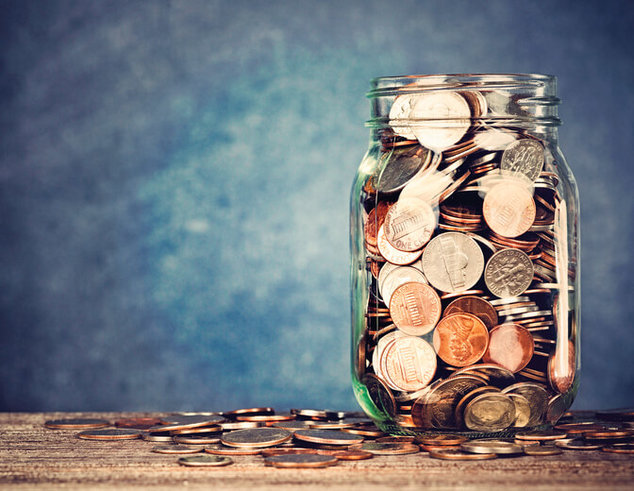How to Find an Accountant
I am not a financial expert. I'm just an average guy who wants to improve his personal finances while helping others to improve theirs. I feel comfortable giving general advice, but sometimes people write with specific questions that can only be answered by a qualified financial professional. Some questions are best answered by a lawyer, an accountant, or a financial planner.
What do I mean by that? How does one find professional help?
To find an answer, I polled three CPAs: my own accountant, my wife's aunt Jenefer, and fellow blogger Brian Brown. The all said the same thing: The best way to find an accountant is by referrals. Don't pick someone blindly from a search engine or via the phonebook. Ask your family and friends for recommendations.
Flipping cars for fun and profit
The No Limits Ladies have posted an article on how to flip cars — how to buy used cars for cheap and sell them again for a profit.
I find used vehicles for sale, often times through Cars.com, and I price them using KBB.com. When I find one that I know is in more demand, with a motivated seller at or below private party pricing, I go look at it and sometimes buy it. Then I drive it for a while for free, and sell it when I'm ready, for more than I bought it for. Then I roll that money into the next vehicle, or sometimes keep a bit for myself.
According to the article, the steps to flipping a car are: Continue reading...
Saving Money vs. Making Money
I'm sometimes asked, "Which do you think is more important: saving money or making money?" They're both important, equal factors in the wealth equation:
[WEALTH] = [WHAT YOU EARN] - [WHAT YOU SPEND]
Which is most important to you depends on your current financial situation.
On the road to nowhere: The true story of the worst job I ever had
Your job is one of your most important assets. It gives you earning power. It can bring you personal fulfillment. But what happens when you're stuck in a job you hate? Here's the true story of the worst job I ever had.
Unlimited Income Potential
I made some poor choices at the end of my college career; as a result, I graduated without a prospect for work. No matter -- I lived off my credit cards for a few months, basking in the glow of adulthood. Eventually I realized that I needed to find a job.
My father, a life-long salesman, and always a sucker for other salesmen, set me up to meet with an insurance guy who had tried to sell him a policy. We met in a Denny's on the far side of Portland early on a Saturday morning. The guy gave me long, slick pitch, touting the job's "unlimited income potential". He needn't have bothered. I needed work and was dumb enough to think that this was a perfect. I signed up.
Control impulse spending with the 30-day rule


I made a trip to Costco to buy business supplies last week. While browsing the software, I spotted the latest version of Quicken. I picked up the box and looked at the list of new features. I felt that urge creep upon me — the urge to spend. "Maybe the Mac version is out, too," I thought. "I should stop by Fry's to check."
Then I thought of the $50 it would cost to upgrade. I thought how Quicken 2004 has served me well for three years. I began to have doubts. "I'll use the 30-day rule," I told myself. "If I still want this next month, I'll buy it." Continue reading...
Survey: What does money mean to you?
Get Rich Slowly is the final entrant in JLP's Question-of-the-Day Marathon. There have been many thought-provoking questions over the past month; I hope you've had a chance to contribute at some of the participating sites. My question is:
What Does Money Mean to You?
When I was a boy, my family was poor. Money then meant necessities to me. It was the key to obtaining essentials, especially food and clothing. Sometimes it opened other doors, too: candy, comic books, movies. But mostly it was a means to obtain the things we needed to survive.
When I was a young adult, however, my attitude changed. My father had a successful business venture, so we had more money when I was in high school.  I went to a college where I was surrounded by kids from wealthy and successful families. I began to view money as the means whereby I could acquire the luxuries my peers seemed to already have. I acquired a lot of luxuries. I bought anything I wanted: books, computers, video games, gadgets, etc. I bought things even if I didn't have the money.
I went to a college where I was surrounded by kids from wealthy and successful families. I began to view money as the means whereby I could acquire the luxuries my peers seemed to already have. I acquired a lot of luxuries. I bought anything I wanted: books, computers, video games, gadgets, etc. I bought things even if I didn't have the money.
27 money tips for college students
School's back in session, and with it come life-lessons in money management for students. But personal finance can be easy, even if you're just starting out. You just have to know how it works. All of the following are concepts I wish I had known before heading to college.

Money Management
Now that you're on your own, you might be tempted to spend money on all the things your parents wouldn't let you have before. Go slow. If you play it smart, you can avoid the sort of money troubles that plague many young adults.
- Join a credit union. Don't just sign up for a random bank giving away t-shirts or frisbees at registration. Track down a credit union in town, or do some research into online banks.
- Don't get a credit card unless you absolutely need one. Don't be a sucker. Those guys sitting behind the sign-up table are not there to help you. They're there to make money.
- Avoid non-academic debt. It might seem like a good idea to put that Xbox on a credit card, but it's not. Focus on developing good money skills with cash. Worry about credit later.
- Save and then splurge. If you decide you must have that Xbox, then save for it. Wait until you can pay cash.
- Pay your bills on time. Basic advice, but it's surprising how many people lose track of things. If you pay your bills as they arrive, you won't have to worry about forgetting them.
Organization and Planning
Some minimal organization will keep your finances in order. Each of these is an important adult financial skill.
The Politics of Personal Finance
Thrift, frugality, and investing are pursuits that cross political, religious, and social boundaries. Regardless of your ideology, sound personal finance habits can help you live a better life.
There seem to be three distinct classes of personal finance books:
- Those with an overt religious-based foundation for thrift. Dave Ramsey bases the ideas in The Total Money Makeover on his Christian faith. Miserly Moms takes its cues from Christianity, too.
- Those espousing a "reactionary" back-to-the-earth philosophy. I'm currently reading Living Simply with Children, which is a great book, but clearly written from a more "liberal" perspective.
- Those that fall somewhere between, or which straddle both camps. This group comprises the bulk of personal finance books. Some, like Your Money or Your Life, manage to simultaneously promote Christian beliefs and a sort of "New Age" philosophy. Others studiously avoid any sort of dogma.
There's nothing wrong with any of these perspectives. They're all good. And they allow authors to bring new ideas and new techniques to the realm of personal finance. In Living Simply with Children, for example, Marie Sherlock talks about raising children with no concept of Christmas. But in Miserly Moms, the Joni McCoy argues that there's a Biblical basis for mothers staying home with their children.
The Only Credit Card Guide You’ll Ever Need
I don't like credit cards. They're a dangerous trap, especially for the young. Many smart people disagree with me, though, and have learned to use credit cards to their advantage. This guide provides solid credit card information so that you can make smart choices.
I've structured this as a series of questions and answers. There's sure to be a lot missing. Please let me know what else should be included here, and I'll add it. Let's start with the big question:
Where can I find the best credit card deals?
Low-interest credit cards
- Ongoing low-APR cards
- 0% introductory offer cards
- 0% balance transfer cards
Reward credit cards
- Cash-back cards
- Cards with rewards
- Travel and airline cards
- Gas cards
- Secured credit cards
- Unsecured credit cards
What should I be wary of when getting a credit card?
If you think you might need a new credit card, be sure to read Nine Things to Consider When Choosing a Credit Card. This short checklist is an excellent way to make sure you don't forget something important that can come back to burn you later. Also be wary of stupid credit card tricks.
Which financial records to keep (and how long to keep them)
An AskMetafilter user wonders how long to keep receipts:
I have been keeping all of my receipts for some time now. Every day, I enter them into my money tracking system (presently just a text file where I capture date, payee and amount). Then I file the receipts away in folders by month. My question: does it do me any good to save the receipts, or is having the data good enough? [...] I've never had to bring out individual receipts for tax purposes before, but my understanding is that if I got audited, having all my receipts would be very helpful. Is that true?
Bankrate has an excellent table summarizing how long to keep financial records. To summarize:
